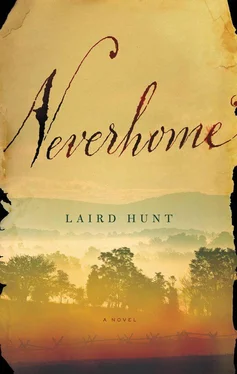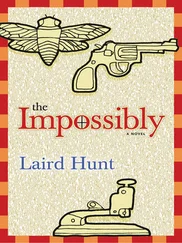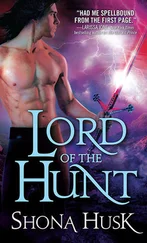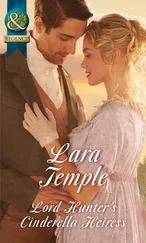“Let me speak,” he said.
I did not answer. There was blood already dripping from my lips and my eyes and he did not open his mouth again, only looked at me a little queer, like he had seen his dream of me gone mad come now to crouch above him, and nodded when I repeated myself. Then I told him I was done talking and called him husband and made him lie back down.

Sleep without dream. Tunnel without end. Sky without stars. Rainbows burst to bloody colored bits. I did not know where I was when I woke and I stumbled around in the straw for a minute, imagined there was chained women sleeping around me, that there was minié bullets or a bucket of ice water and fists coming for my head. I told Bartholomew, who wasn’t there, not to fret, that we would fight the keeper and her ice bucket off together. Then I heard voices in the yard. I picked up the Henry, fed it all the way full of cartridges, and went to the hayloft window. It was still some dark out but you could smell sun in the purple sky and I could cipher well enough. Men in the yard. Metal in their hands. They were wearing hats and long coats against the morning cold and they were bunched and smeared together. It took me the only several seconds I had but I counted first four, then all five of them.
They had the barn to their front, the house behind, and forty fine yards on either side. It was like the door had been shut on them. Like when those boys got caught down in the crater and couldn’t climb up its sides. I didn’t like what I was about to set to doing, but I didn’t like them spending their days setting there on my chairs worse. I didn’t like Bartholomew fetching them their coffee worse. I didn’t like the deep fat on the back of Ned Phipps who some said was my father either. Ned Phipps who some said was my father who had helped scare off my mother and burn out our neighbor woman worse. It was him I shot first. I breathed and then hit him on the side of the neck and he fell out of his boots like a side of bad beef and went crawling off in the direction of his horse. The one I had fought with at the market took his in the forehead. The bullet stove out the back of his head and left a spray in the dawn light almost up to the house. The three of them left unhit needed to move but instead stood staring at Ned crawling off and at the boy had once troubled me now dead as dust sitting on the dirt beside them. I shot another twice in his chest and then into the middle of my fury came a goat up out of nowhere, crazed and hopping left and right, so I shot it too. It sat back on its haunches then folded up its front legs and dripped down its head.
When the goat went down the other two boys took it as a sign and dropped the guns they hadn’t once fired, cried mercy, went into squats and put their hands over their heads. At the minute they did this I heard a hard creak behind me and turned a little and saw a hat and a gun barrel coming up the hole into the shadow of the haymow. The hat came up and the gun lifted after it and I spun full around and shot as the black circle of the barrel found my face. I took the climber through his shoulder and he slumped over and set the gun down gentle in the straw.
Boys had been squatting outside started to run at my shot and I took the one trailing a step straight through his side. I would have taken out the last a short second later only the Henry jammed. I gave a quick try at clearing the mechanism but it wouldn’t budge and I saw the boy wasn’t shot running past Ned Phipps toward the corral. I didn’t like to be too rough but the one had tried to come up behind me was blocking my way so after I had grabbed up his gun I shoved him down the ladder. He hit barn dirt with a whump and groan. I was over him and out the side door when I saw what the son-of-a-bitch had meant to end my days with: I now had my mother’s musket in my hand.
Old weapon. Built for other fights and days. It hadn’t ever been rifled and wobbled its round balls like drunk babies but I could see even at a run that it had been well oiled and I knew that it would hit. The boy was already bareback on Ned Phipps’s handsome black horse and had the corral open when I came around the barn. He reined up a minute when he saw who it was in her skirts had been shooting at them. Just like that outlaw boy had done in the house in the woods. I didn’t say a word, only kept coming forward the way we had been taught in the Kentucky fields, the way we had done it in the Maryland pasture, the way we had fought with the cannon fire killing us into wet nothing in the Virginia woods. I kept coming so he kicked the horse hard and cleared the corral and lit out down the road toward town. I got my line of sight, kneeled, lifted my mother’s musket, lowered it a quarter inch, let out my breath, fired off my wobbly ball through the dawn, and shot him down. The handsome black horse galloped on a ways without its rider, then stopped, gave itself a shake, and set in to nibbling like it was Sunday afternoon. I had no urge to shoot at it. The goat had been a mistake. I felt bad about that goat and would not murder a horse.
Ned Phipps was gurgling loud over at the corral fence. He had got about halfway up to standing. His hat had fallen off and his pants had slid loose down his legs in the crawling. When I got up on him he was dead. Father mine. The others in the yard were just as finished or aiming fast for it.
“Come on out now, Bartholomew,” I called. I got no answer. Called again. I looked at the musket in my hands, then I counted the corpses. My heart skipped a hard beat so I counted again. Five dead boys and a goat. The one inside made it six. Six was too many.

Before he died with his head in my lap at the bottom of the barn ladder where I had thrown him, Bartholomew asked me what it had been like down south at the war, and I told him it had been hot.
“It was hot here too, Constance, and I thought you were dead,” he said.
“Then, husband, you have been kissed and shot by a ghost.”
“I wanted to sell,” he said. “Sell and move on out of here. I lacked only the deed.”
“You could have done it without the deed. All you had to do was take their money.”
“I wanted to do it right.”
“You would have never found it.”
“I’d’ve kept digging.”
“You were my one true love; you put feathers in my letters, you left me a lilac bundle by my breakfast in the long ago.”
“Was I?”
“Always.”
“Every day I took up the shovel and dug for the deed. Ned made me a fair offer. He and his boys were helping me dig. There wasn’t any harm in it. You didn’t have to kill them all. You should have stayed down there a little longer at your war.”
“And you should have looked up into the trees, husband, not down into the dirt.”
“You hid it in the ash tree,” he said.
“Yes,” I said.
Then he died.
The scrawny sheriff was in his office, and when I told him I was Constance Thompson returned from my wayfaring, he said he had just that minute come back from my land. I started to make my speech and ask for my noose but he stopped me, gave me his condolences, told me my farm had been the site of a terrible crime. Once more I started in on my speech and once more he stopped me. He said a stranger had been in town asking questions about our farm. The stranger had been at the café and complained about some slight of hospitality out our way. The stranger, said the scrawny sheriff, was fresh back from the war and had had nothing but blood in his eyes. The last anyone had seen of this stranger was when he had walked out of town heading our way. You could put that all together. The other part to the equation, he went on, was that there had been some boys and a posse of flouncy women camping and carrying on out in the hinterlands had come into town sniffling about a missing Henry repeater rifle. They had told some that they had been in the war and others that they hadn’t but they had clammed up tight, and left soon after, when someone asked just how they had come to lose such a gun.
Читать дальше













